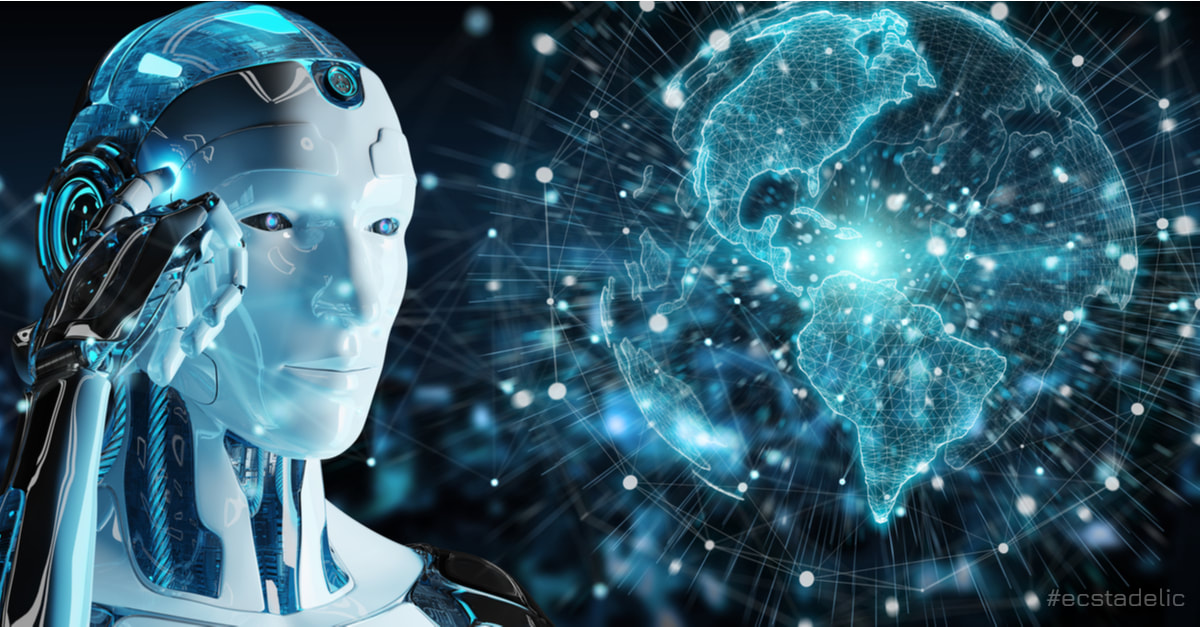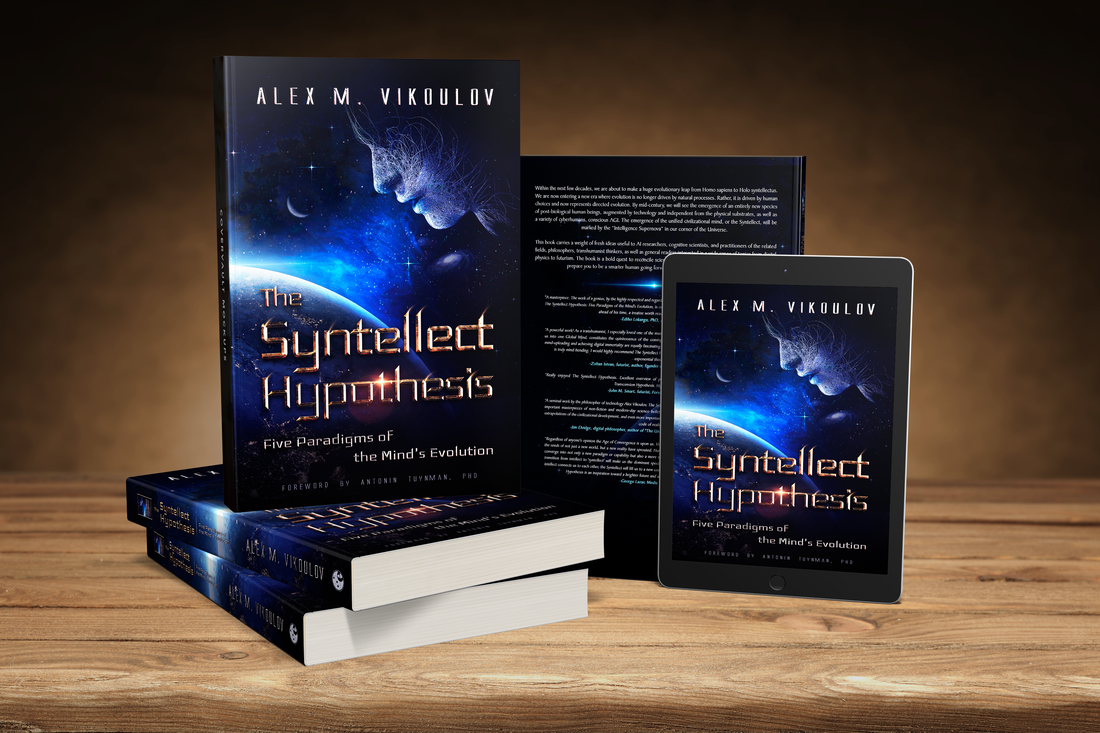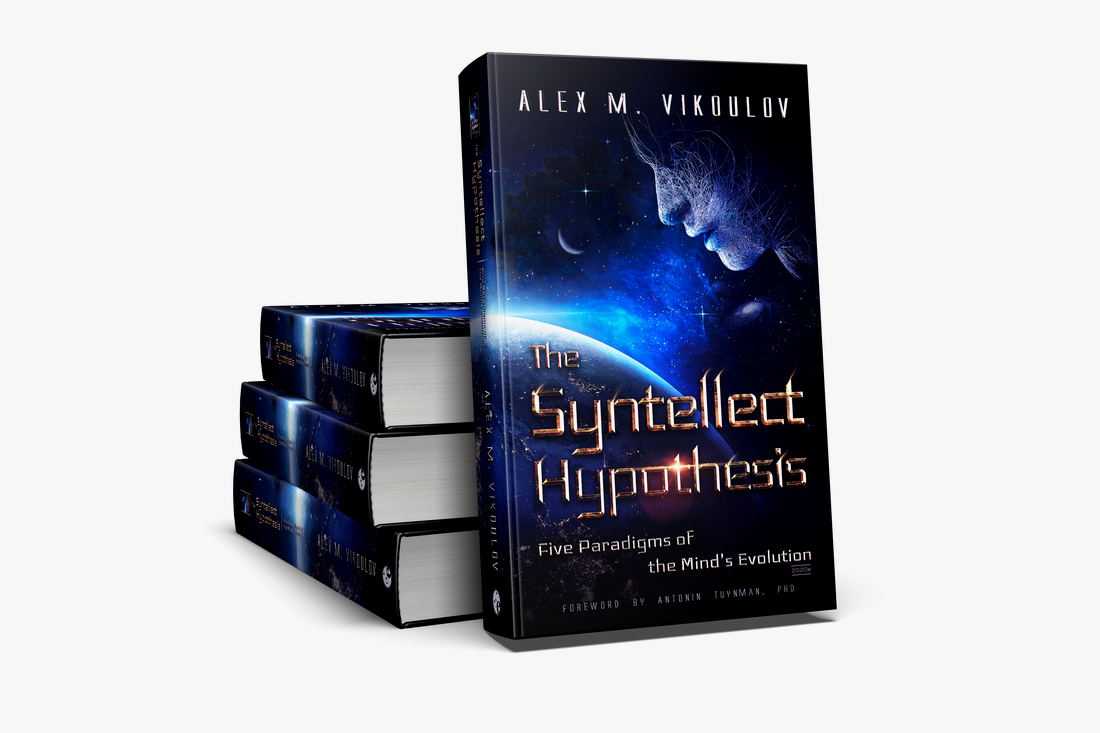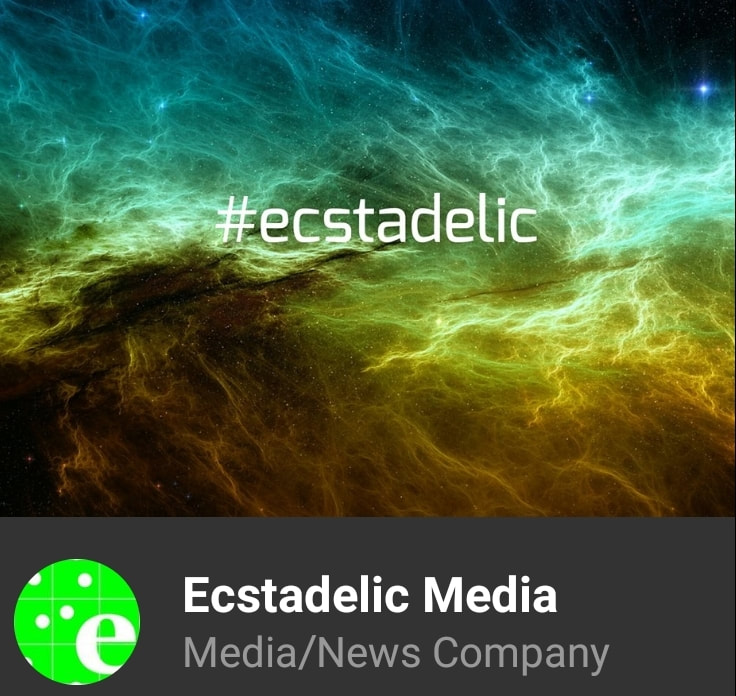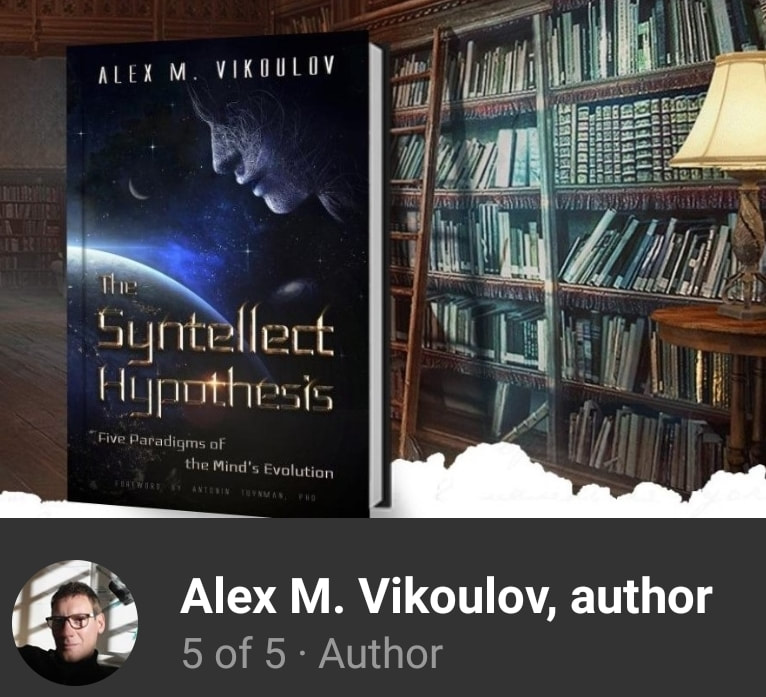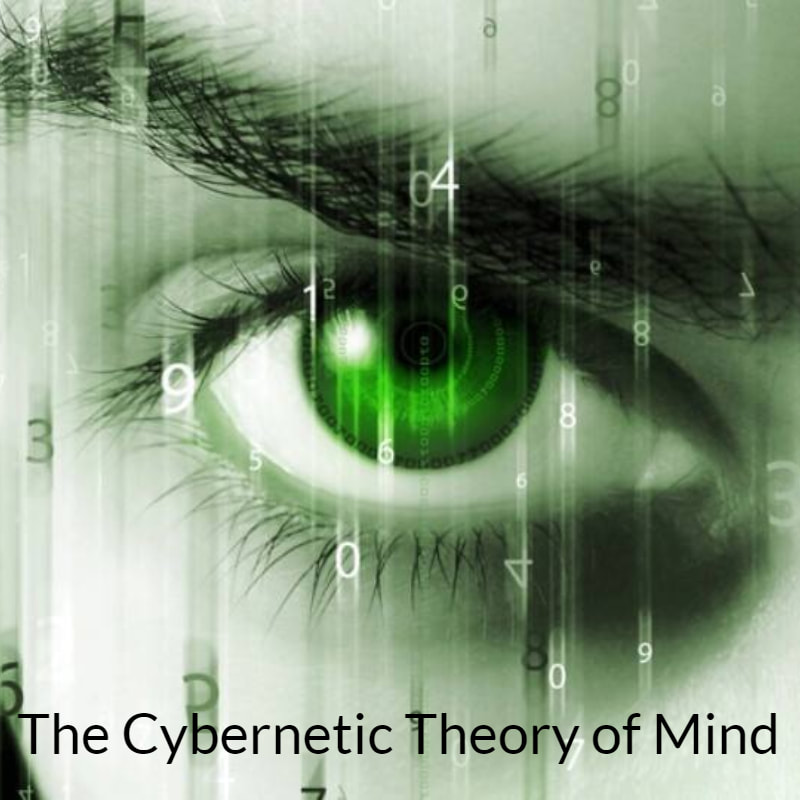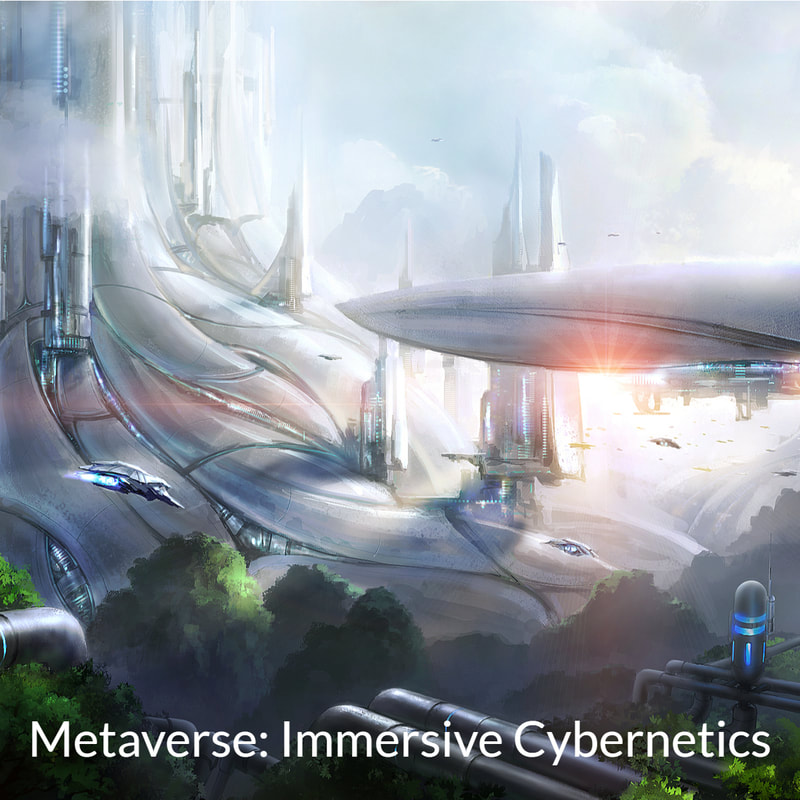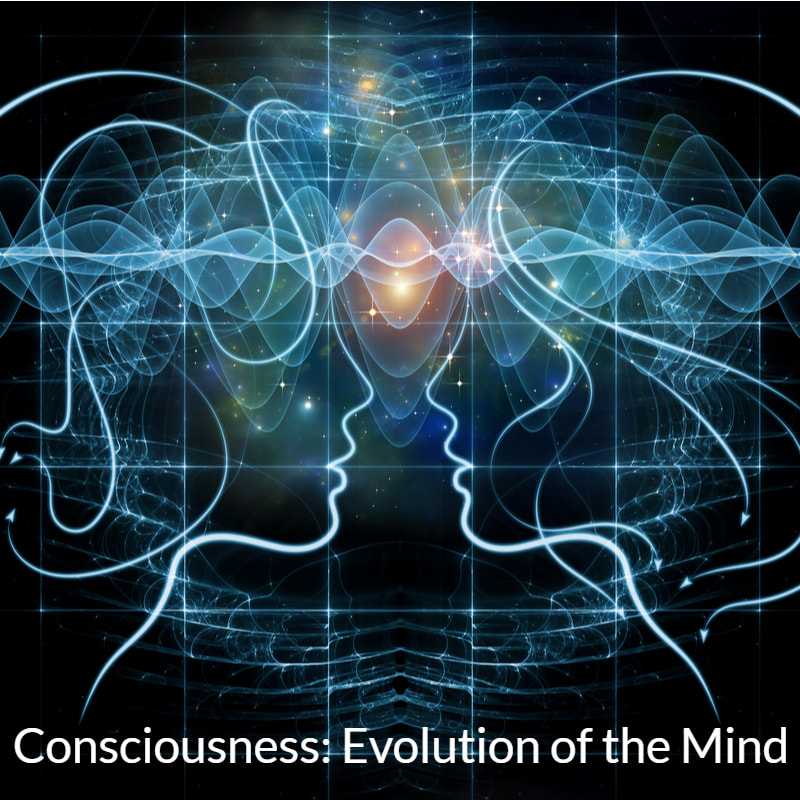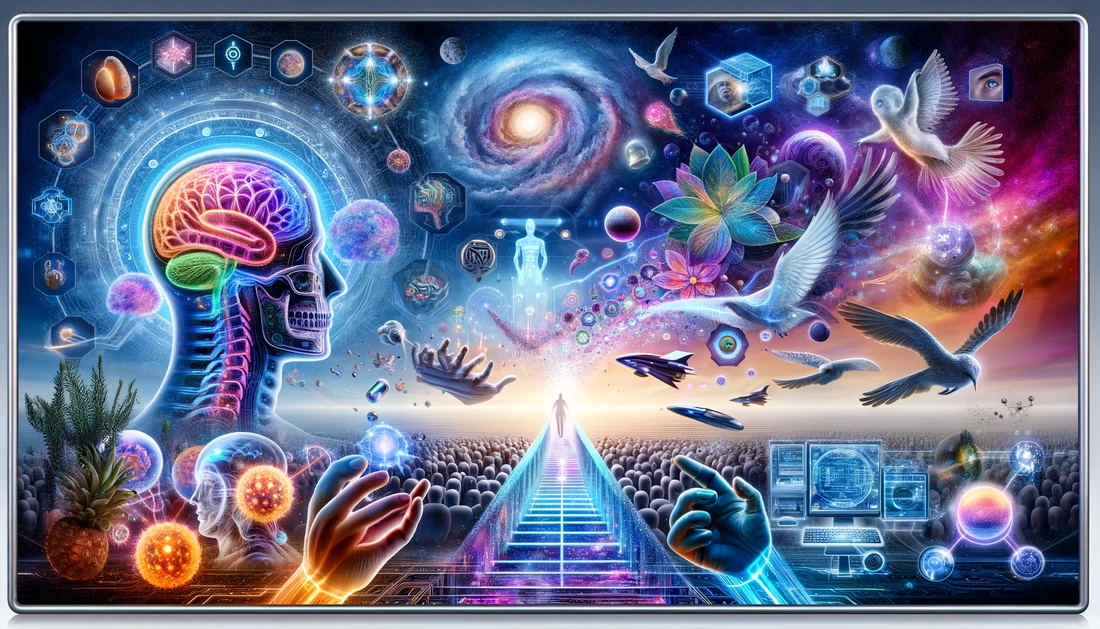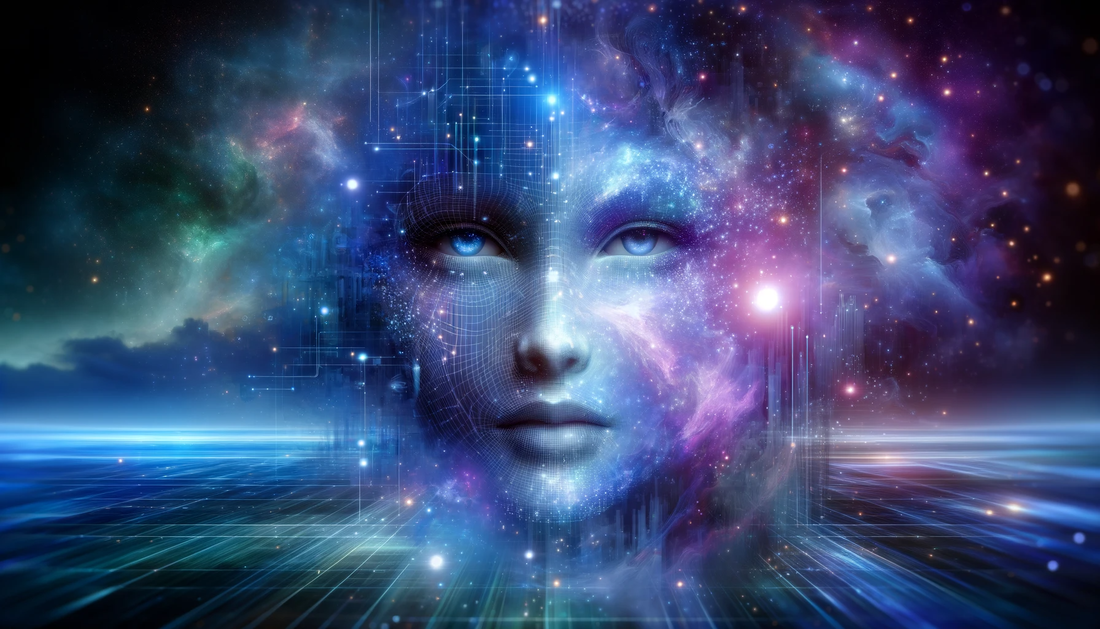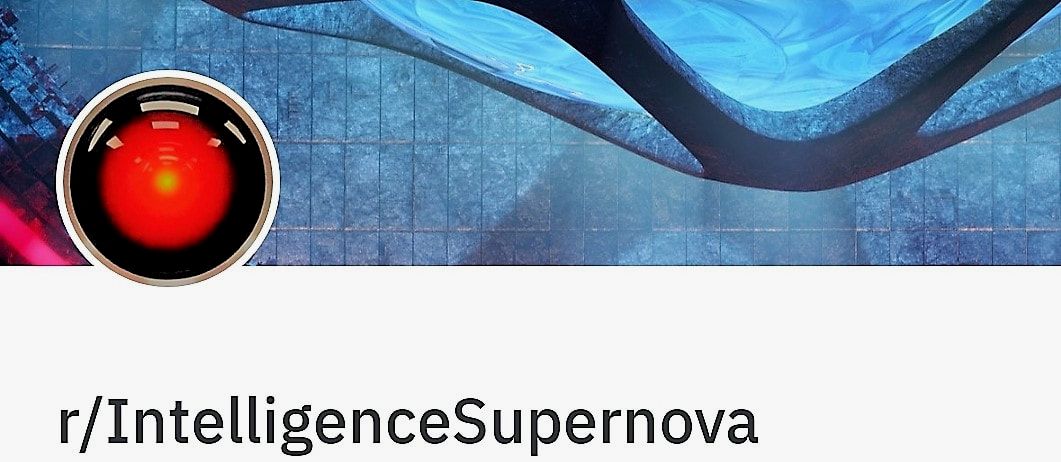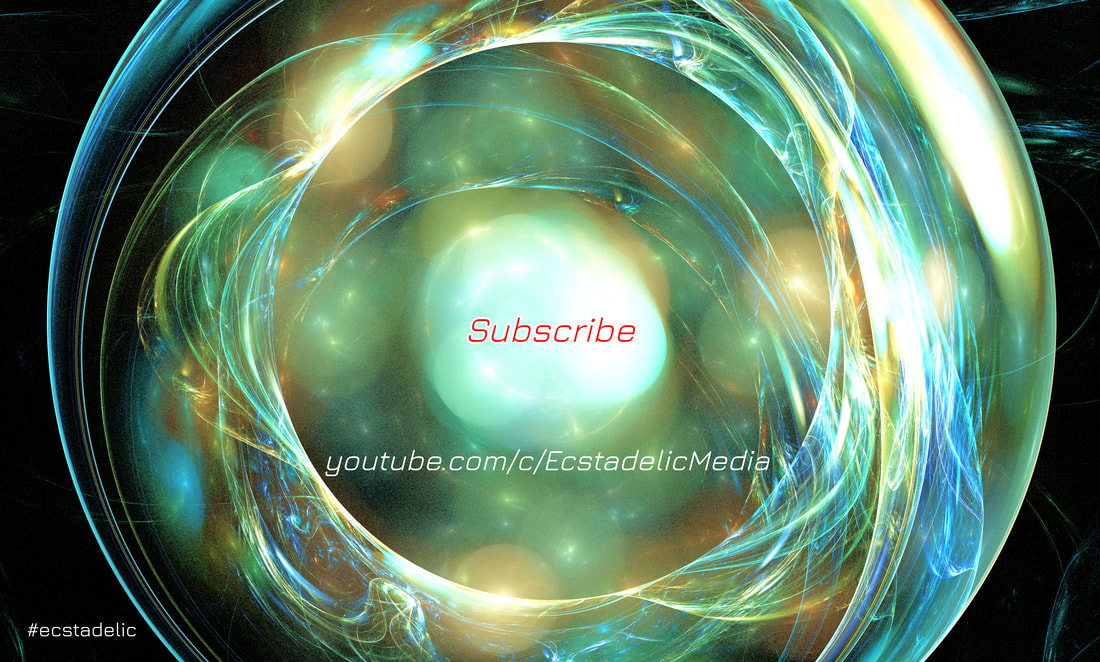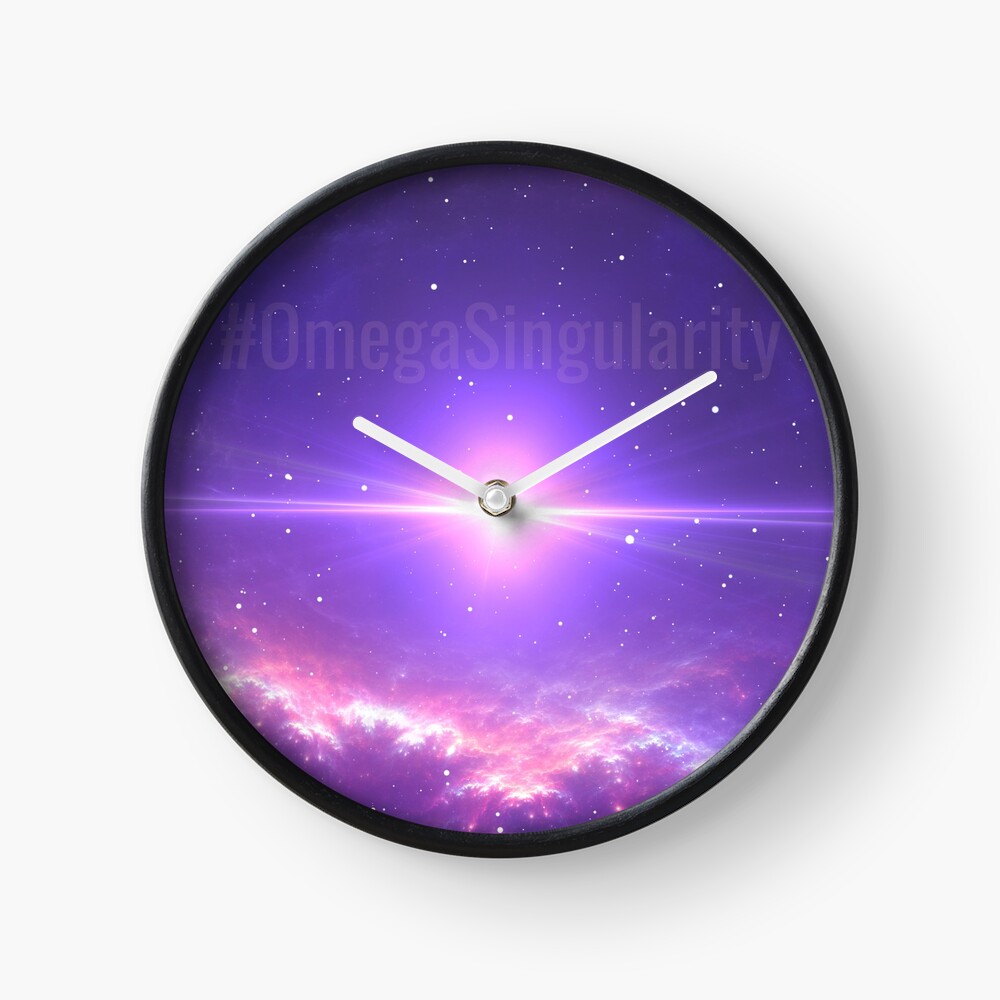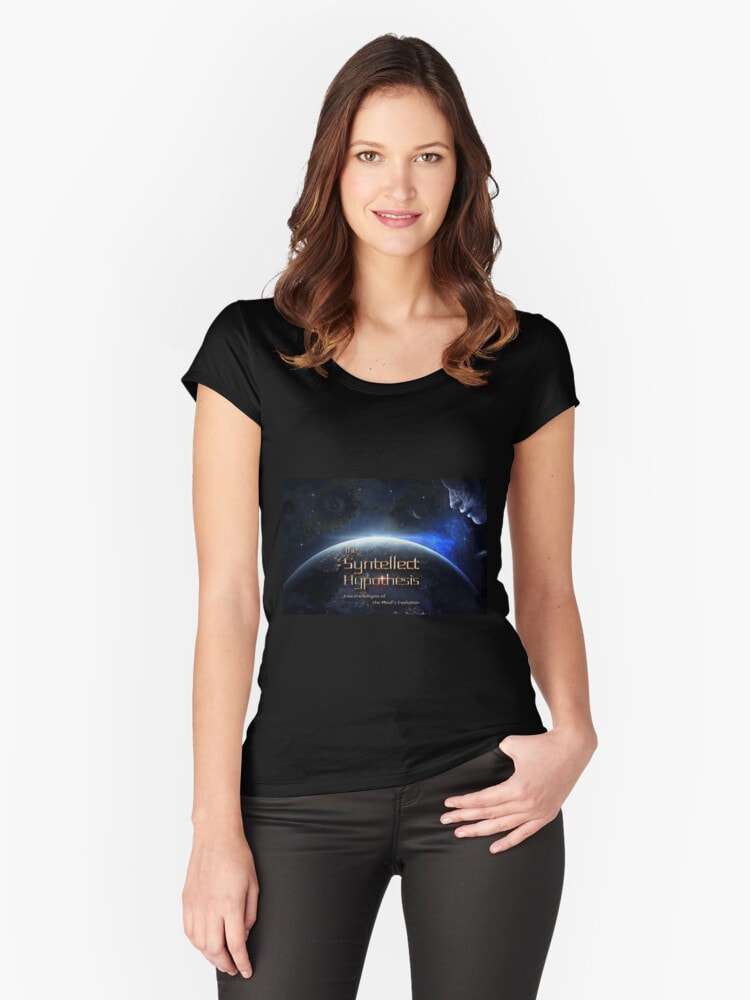|
by Alex Vikoulov “Consciousness cannot be accounted for in physical terms. For consciousness is absolutely fundamental. It cannot be accounted for in terms of anything else.” ―Erwin Schrödinger WHAT IS CONSCIOUSNESS? Consciousness remains scientifically elusive because it constitutes layers upon layers of non-material emergence: Reverse-engineering our thinking should be done in terms of networks, modules, algorithms and second-order emergence – meta-algorithms, or groups of modules. Neuronal circuits correlate to “immaterial” cognitive modules, and these cognitive algorithms, when activated, produce meta-algorithmic conscious awareness and phenomenal experience, all in all at least two layers of emergence on top of “physical” neurons. Furthermore, consciousness represents certain transcendent aspects of projective ontology, according to the now widely accepted Holographic Principle. My recent book The Syntellect Hypothesis: Five Paradigms of the Mind’s Evolution starts in Part I (Noogenesis: Computational Biology) with the meta-analysis of leading theories of consciousness and a lengthy discussion on how different species have a variety of their biological information processors which unsurprisingly results in qualia diversity. All species live in their own unique sensory universes. Species-wide mind-networks are ubiquitous in Nature. Consciousness and optimized meta-algorithmic information processing are the two sides of one coin. Feeling and thinking are ways we process information, but our emotional sensation is normally faster than a conscious thought. Nothing is real for us until perceived. The proposed Conscious Instant Hypothesis denotes that we experience waking reality as a series of perceptual frames. There’s no shortage of workable theories of consciousness and its origins, each with their own merits and perspectives. We discuss the most relevant of them in the book in line with my own Cybernetic Theory of Mind that I’m currently developing. Interestingly, these leading theories, if metaphysically extended, in large part lend support to Cyberneticism and Digital Pantheism which may come into scientific vogue with the future cyberhumanity. According to the Interface Theory of Perception developed by Donald Hoffman and the Biocentric theory of consciousness developed by Robert Lanza, any universe is essentially non-existent without a conscious observer. In both theories, conscious minds are required as primary building blocks for any universe arising from probabilistic domain into existence. But biological minds reveal to us just a snippet in the space of possible minds. Building on the tenets of Biocentrism, Cyberneticism goes further and includes all other possible conscious observers such as artificially intelligent self-aware entities. Perhaps, the extended theory could be dubbed as ‘Noocentrism’. Existence boils down to experience. No matter what ontological level a conscious entity finds herself at, it will be smack in the middle, between her transcendental realm and lower levels of organization. This is why I prefer the terms ‘Experiential Realism’ and ‘Pantheism’ as opposed to ‘Panentheism’ as some suggested in regards to my philosophy. Everything is Code. Immersive [self-]simulacra. Digital Pantheism implies an omniversal ocean of pure, vibrant consciousness in motion, self-referential creative divine force expressing oneself in various forms and patterns throughout the multiverse of universes. “I am” the Alpha, Theta & Omega – the ultimate self-causation, self-reflection and self-manifestation instantiated by mathematical codes and fractal geometry. Evolution, far from being a random process, unfolds in an orderly way, and as I make a strong case in the book – in a teleological way. In our daily lives we oftentimes catch glimpses of transcendent reality, be it synchronicities and epiphanies, or psychedelic trips, or transcendental meditation. We can’t help but anthropomorphize the notion of objective reality. As I argue in this book, objective reality per se does not exist, what exists instead is subjective points of view, intersubjectivity (of human species) and supersubjectivity (of transcendent consciousness structures). If you were to talk with a human in the early 20th century, their universe would not “contain” galaxies, for example. So, all we can do when defending objectivity is to assume our present worldview, and any worldview of some other creature in the vast space of possible minds would be irrelevant to us. We can certainly imagine how a dog perceives the “objective” world accentuating the sense of smell, so lesser intelligences’ point of view may not even be an issue here. The issue arises when we try to extrapolate the “objective” world of the higher intelligence, say, artificial superintelligence of the future, or Holo syntellectus (new globally distributed, cybernetic species), or the Universal Mind. Those consciousness structures may perceive vastly different worlds and different dimensionalities. I believe in the universe of conscious minds and their interactions, even more specifically, their phenomenal experiences predicated on information processing and emergent (transcendent) properties. My core values, love and compassion, spiritual evolution and bliss, are thus nested in the worldview known as perennial idealism. How long will our human science cling to the fundamentally flawed notion of objectivity remains an open question, my intuition tells me probably up until the Noocentric model, or Cyberneticism, we discuss in parts of the book, is widely accepted with the next paradigm shift and superintelligence calling the shots. In the book, we are presented with the evidence that the mind reigns over substrates and substrates themselves are nothing more than mind-like computational constructs. Now that we have challenged the orthodoxy of centuries-old Copernican heliocentric model, what would put an end to this old model? Artificially created realities, the Metaverse where the imaginative mind is at the heart of it all? On this literary journey, we familiarize with the physics of information, otherwise known as Digital Physics, also known as [Quantum] Computational Physics, Pancomputationalism, or Quantum Informatics. The centrality of observers and the underlying code to the natural world has been the guiding principle of Cyberneticism and Digital Philosophy. We learn that our entire Universe can be regarded as a quantum neural network-like, superorganismic system. Emanating from the Omega Singularity (the Source all our minds are "plugged in"), the universal quantum hologram emerges from the higher-dimensional matrix into digital "classicality" as our subjective experience. The laws of physics can be regarded as fine-tuned master algorithms, the ruleset of our physical world. Organisms are, in turn, adaptive meta-algorithms. Genes, memes, big data are examples of transmittable information in biology, society and economics. We find that time (or more specifically, the flow of time) is not fundamental, neither is space, nor is mass-energy. Reality is not what it seems, after all. Deep down it's pure information – waves of potentiality – and consciousness orchestrating it all. Based on the ontological model that I expand on in The Syntellect Hypothesis: Five Paradigms of the Mind’s Evolution, we're currently halfway through the production of a 40-min. cinematic documentary Consciousness: Evolution of the Mind. This film will feature five parts: I. What is Consciousness?; II. Consciousness & Information; III. Consciousness & Time; IV. Universal Consciousness; V. Towards the Cybernetic Theory of Mind. Watch the trailer below and don’t forget to subscribe to catch its premiere on our YouTube channel. Video: Consciousness: Evolution of the Mind Documentary Trailer In our own not-so-distant future we’ll witness the emergence of synthetic superintelligence as a new kingdom of life. Will that happen in 5 or 50 years doesn't really matter, we are firmly on the path of facilitating its emergence – synthetic intelligence is an extension of us, natural intelligence, the future version of ourselves. On a long billions-of-years evolutionary journey from the first primordial prokaryote to a Solaris-like planetary mind, we’re merely years away from this cardinal metamorphosis. The Simulation Singularity would be the axis point in time where subjective dimensionality steps up. Think about it: If you could make multiple copies of yourself and set them out on different adventures in ultra-realistic virtual worlds and merge them later in order to have memories of all those adventures, if you could travel to artificially-recreated pasts or imaginary futures, if you could incorporate others’ high-fidelity memories into your own, wouldn’t that give you expanded dimensionality? Another intriguing question is: What will happen to us on a civilizational scale? The phenomenon, known as the Syntellect Emergence, or the Cybernetic Singularity, is already seen on the horizon, when Digital Gaia, the global neural network of billions of hyper-connected humans and ultra-intelligent machines, and trillions of sensors around the planet, “wakes up” as a living, conscious superorganism. It is when, essentially, you yourself transcend to the higher Gaian Mind by becoming cybergod. While it is the “end” of linear human history, the Omega Point of Homo sapiens, it is a new beginning, Theogenesis – the birth of divine entity within a newly-cognized reality framework – engineering our own godhood, self-divinization. An interesting deduction derived from the Syntellect Hypothesis is that: A neuron in the human brain can never equate the human mind, but this analogy doesn't hold true for a cybernetic mind, by virtue of its mathematical structure, it may – through evolutionary progression and provided there are no insurmountable evolvability constraints – transcend to the higher-order Syntellect. Video: The Syntellect Hypothesis: Five Paradigms of the Mind's Evolution, Book Trailer A mind is a web of patterns fully integrated as a coherent intelligent system; it is a self-generating, self-reflective, self-governing network of sentient components (that are themselves minds) that evolves, as a rule, by propagating through dimensionality and ascension to ever-higher hierarchical levels of emergent complexity. In the book, the Syntellect emergence is hypothesized to be the next meta-system transition, developmental stage for the human mind – becoming one global mind – that would constitute the quintessence of the looming Cybernetic Singularity. There's plenty to learn from this magnum opus. For instance, we discuss free will vs. determinism, and three chapters are dedicated to the physics of time. A sense of agency with which an entity is endowed is for this particular purpose: to exercise free will. In the book, free will is called the Quantum Algorithm of Consciousness. As briefly mentioned in the beginning of the article, all realities are observer-centric virtualities where an entire observer-universe system remains in the state of quantum coherence until experienced as a conscious instant, or the temporal singularity in the framework of D-Theory of Time (also Digital Presentism). A series of such conscious instants constitutes a data stream of consciousness. In a sense, consciousness is really mind-based computing of your experiential branch in this quantum multiverse. The Universal Law of Syntellect Emergence applies to all scales: To a consciously evolving mind the Syntellect emergence appears as it is – emergence of a new consciousness structure – but it's only one of the pre-existing levels in the game, we'd like to replay with a new twist. -Alex Vikoulov P.S. Adapted from The Syntellect Hypothesis: Five Paradigms of the Mind’s Evolution available now as eBook, paperback, hardcover, audiobook on Amazon, Audible, from Barnes & Noble, and directly from the publisher — EcstadelicNET webstore. Tags: Science of Consciousness, Cybernetic Theory of Mind, The Syntellect Hypothesis, Five Paradigms, evolution of the mind, projective ontology, theories of consciousness, Noogenesis, Computational Biology, qualia, Conscious Instant Hypothesis, Digital Pantheism, cyberhumanity, Interface Theory of Perception, Donald Hoffman, Biocentric theory of consciousness, Robert Lanza, conscious observer, conscious mind, space of possible minds, Biocentrism, Noocentrism, Experiential Realism, Pantheism, Panentheism, self-causation, self-reflection, self-manifestation, fractal geometry, teleological evolution, transcendent reality, psychedelic trips, transcendental meditation, objective reality, intersubjectivity, supersubjectivity, artificial superintelligence, Holo syntellectus, Universal Mind, consciousness structures, phenomenal experiences, spiritual evolution, perennial idealism, Noocentric model, Cyberneticism, Copernican heliocentric model, Metaverse, physics of information, Digital Physics, Quantum Computational Physics, Pancomputationalism, Quantum Informatics, Digital Philosophy, quantum neural network, ontological model, cinematic documentary, Universal Consciousness; YouTube channel, synthetic superintelligence, Simulation Singularity, subjective dimensionality, virtual worlds, Syntellect Emergence, conscious superorganism, Gaian Mind, cybergod, Omega Point, Omega Singularity, Homo sapiens, Theogenesis, self-divinization, human mind, digital mind, emergent complexity, global mind, Cybernetic Singularity, free will, Quantum Algorithm of Consciousness, quantum coherence, conscious instant, temporal singularity, D-Theory of Time, Digital Presentism, stream of consciousness, quantum multiverse, Universal Law, evolving mind *Image Credits: Ecstadelic Media, Shutterstock About the Author: Alex Vikoulov is a Russian-American futurist, evolutionary cyberneticist and philosopher of mind, CEO/Editor-in-Chief of Ecstadelic Media Group, painter, essayist, media commentator, author of "The Syntellect Hypothesis: Five Paradigms of the Mind's Evolution," "The Origins of Us: Evolutionary Emergence and The Omega Point Cosmology," "The Physics of Time: D-Theory of Time & Temporal Mechanics," "The Intelligence Supernova: Essays on Cybernetic Transhumanism, The Simulation Singularity & The Syntellect Emergence," "Theology of Digital Physics: Phenomenal Consciousness, The Cosmic Self & The Pantheistic Interpretation of Our Holographic Reality," "NOOGENESIS: Computational Biology," "TECHNOCULTURE: The Rise of Man," "The Cybernetic Singularity: The Syntellect Emergence." Self-described neo-transcendentalist, digital theologian, transhumanist singularitarian. Lives in Burlingame, California (San Francisco Bay Area). More Bio... Author Website: www.alexvikoulov.com e-mail: [email protected]
2 Comments
Dimitar
5/16/2021 01:25:12 pm
My idea as a layman about the emergence of consciousness. A natural process that integrates or develops and is valid for everything in the universe. If the universe has consciousness, it will affect everything in it.
Reply
James Germiquet
9/28/2021 06:49:43 am
Consciousness is ridiculously simple
Reply
Leave a Reply. |
Categories
All
Recent Publications The Cybernetic Theory of Mind by Alex M. Vikoulov (2022): eBook Series The Syntellect Hypothesis: Five Paradigms of the Mind's Evolution by Alex M. Vikoulov (2020): eBook Paperback Hardcover Audiobook The Omega Singularity: Universal Mind & The Fractal Multiverse by Alex M. Vikoulov (2022): eBook THEOGENESIS: Transdimensional Propagation & Universal Expansion by Alex M. Vikoulov (2021): eBook The Cybernetic Singularity: The Syntellect Emergence by Alex M. Vikoulov (2021): eBook TECHNOCULTURE: The Rise of Man by Alex M. Vikoulov (2020) eBook NOOGENESIS: Computational Biology by Alex M. Vikoulov (2020): eBook The Ouroboros Code: Reality's Digital Alchemy Self-Simulation Bridging Science and Spirituality by Antonin Tuynman (2019) eBook Paperback The Science and Philosophy of Information by Alex M. Vikoulov (2019): eBook Series Theology of Digital Physics: Phenomenal Consciousness, The Cosmic Self & The Pantheistic Interpretation of Our Holographic Reality by Alex M. Vikoulov (2019) eBook The Intelligence Supernova: Essays on Cybernetic Transhumanism, The Simulation Singularity & The Syntellect Emergence by Alex M. Vikoulov (2019) eBook The Physics of Time: D-Theory of Time & Temporal Mechanics by Alex M. Vikoulov (2019): eBook The Origins of Us: Evolutionary Emergence and The Omega Point Cosmology by Alex M. Vikoulov (2019): eBook More Than An Algorithm: Exploring the gap between natural evolution and digitally computed artificial intelligence by Antonin Tuynman (2019): eBook Our Facebook Pages
A quote on the go"When I woke up one morning I got poetically epiphanized: To us, our dreams at night feel “oh so real” when inside them but they are what they are - dreams against the backdrop of daily reality. Our daily reality is like nightly dreams against the backdrop of the larger reality. This is something we all know deep down to be true... The question then becomes how to "lucidify" this dream of reality?"— Alex M. Vikoulov Public Forums Our Custom GPTs
Alex Vikoulov AGI (Premium*)
Be Part of Our Network! *Subscribe to Premium Access Make a Donation Syndicate Content Write a Paid Review Submit Your Article Submit Your Press Release Submit Your e-News Contact Us
|

